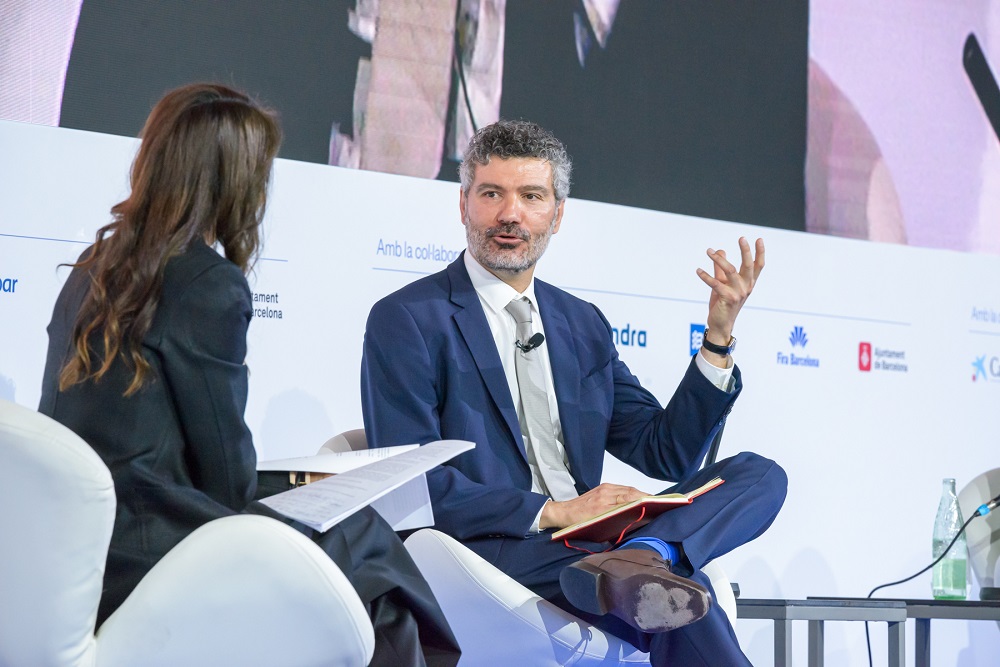"A white elephant inside a room that no one dares to make decisions about, that everyone knows is there and that generates an enormous degree of complexity and damage." This is how Camino Quiroga (member of the Board of Directors of Cercle d'Economia) defined bureaucracy, while advocating that the Spanish system – "enormously guaranteed, which reduces the level of corruption" – needs to be compatible with the criteria of agility and efficiency for the benefit of all those administered (i.e. citizens and companies).

Cristina Herrero, president of AIREF, postulated that "there is a clear association between productivity and administrative action" and that, in its regulatory function, the "public administration must guarantee compliance with the regulations and also equity and equal opportunities" regarding this administrative action. He defended a scheme based on proportionality and agility (when possible, with the automation of processes) and reflected that "the mere perception that administrative intervention is a bureaucratic obstacle already implies in advance a disincentive to interact with the administration".
Vanessa Gelado, Senior Managing Director and Country Head of Hines Spain, said that "we should aspire to a public administration at the service of companies and citizens" and regretted that "in Spain we have administrations that are closer to the work of control and inspection than to aid and to see how economic activity and the well-being of those administered can be encouraged". He also criticized that these administrations often take into little consideration "two fundamental variables" for the company, that is, the time factor and the cost factor.

Víctor Lapuente, professor of Political Science at the University of Göteborg, asked the following question aloud: "Is bureaucracy necessary?" He put it in context: "When you see that two years go by to obtain a license for the expansion of economic activities, when there are people who die before the aid reaches the dependency, when the Minimum Vital Income only reaches a certain percentage of the population, you realize that we have a serious problem." He placed Spain in 17th place out of the 27 countries of the European Union in terms of indicators of citizens' perception of the functioning of public administrations: "There is a lot of room for improvement", he said, in terms of "depoliticisation and debureaucratisation".
Non-extendable mandates, institutional quality and questionable digitalisation
As far as depoliticization is concerned, from AIREF Herrero explained the system they apply in the organization she presides. The appointment of the figure of the president is for six years without extension, which "completely disassociates him or her from the political cycle". It also valued factors such as the experience required in the entity's own field of activity (more than ten years in the case of AIREF) and the absolute majority of the Congress of Deputies required for the appointment of the figure in question.
Here Lapuente assured that the presence of "independent officials and autonomous managers (of political power)" contributes to the "improvement of institutional quality." And asked by Camino Quiroga about the positive aspects that digitalisation can bring, the professor denied it: "Digitising with approximately 40% of the Spanish population that does not have the appropriate digital skills is not the right thing to do". He said that the digitalisation of public administrations in Spain because of the health pandemic meant a "readjustment of administrative activity" carried out above all "with the aim of meeting the objective of providing public workers with a good working environment rather than to serve the customer or user". And he verbalized: "How can we attract young people and how can we have a digitized administration if we have almost no STEM profiles in the public administration?"

More regulation and control: less promotion of activity
With a professional career developed in Spain, London and the United States and within a multinational, Vanessa Gelado pointed out that "the Anglo-Saxon culture, especially the North American, is much more focused on promoting innovation, investment and the emergence of new ideas than on putting controls and obstacles and trying to supervise the activity". Focusing on regulation, as is done in Spain, he reasoned, translates into "talent drain, loss of investment and a decrease in productivity".
Other elements that emerged during the debate established between the speakers in the framework of this session focused on administrative simplification were the usefulness of measures such as the establishment of the single window, the promotion of positive administrative silence, the generation of internal competitiveness, transparency in the deadlines for resolving procedures and cases, the dismantling of a "nineteenth-century" system of competitions (in the expression of Víctor Lapuente) and the evaluation of the social impact of each euro of all taxpayers.